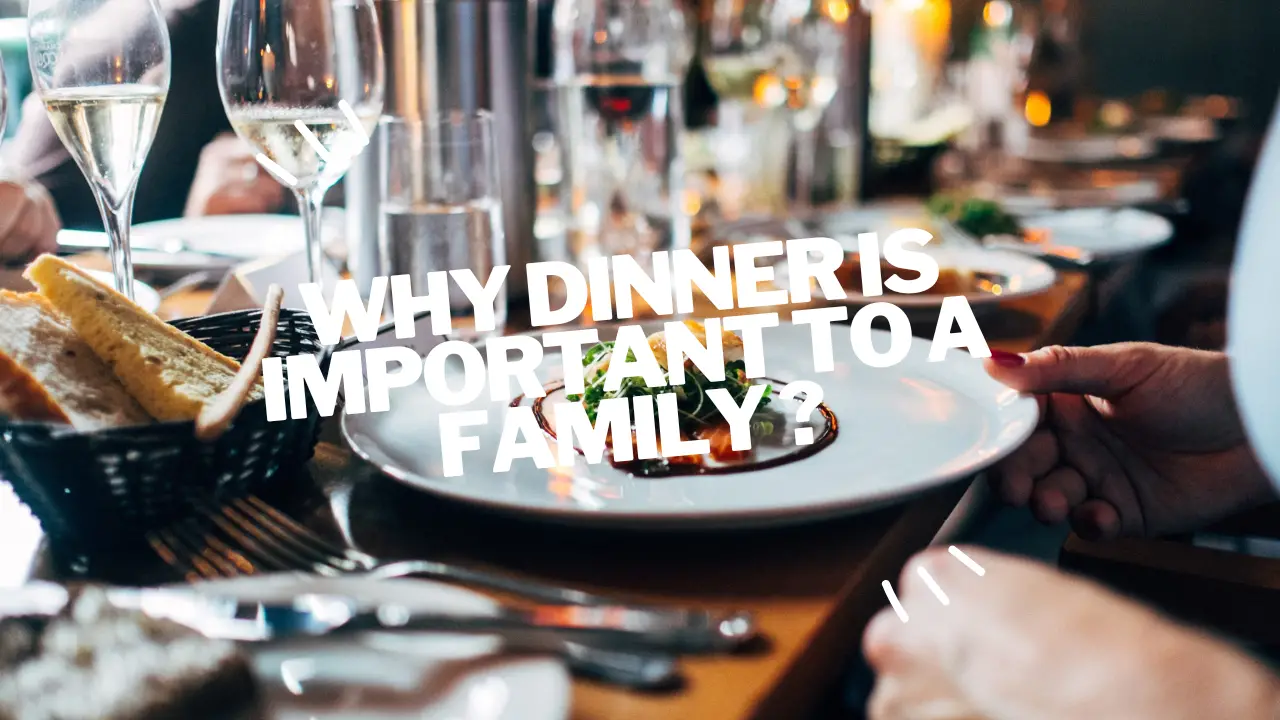In today’s whirlwind of a world, where everyone is constantly on the move, finding time to gather as a family and share a meal together has become as challenging as juggling flaming meatballs. But hold on to your oven mitts, because the importance of family dinners is no laughing matter! Well, maybe just a little. In this article, we’re going to sprinkle some comedic seasoning on why dinner is so important to a family and dish out the various side-splitting benefits it offers.
Creating a Bond: Stirring Up Chaos
Picture this: a table full of family members attempting to eat in harmony. It’s like watching a circus act where everyone is juggling plates, elbows are flying, and the dog is eyeing that juicy steak. Sharing a meal together allows family members to connect on a deeper level, or at least collide forks on the way there. It’s an opportunity to catch up on each other’s lives, discuss important matters, and occasionally shoot peas across the room. Regular family dinners contribute to building stronger relationships and a sense of unity, or at the very least, a mutual understanding that food fights are inevitable.
Enhancing Communication: The Art of Food-Fueled Banter
Family dinners are like a comedy club without the two-drink minimum. Sitting around a table encourages everyone to share their thoughts, feelings, and hilarious anecdotes. Children, in particular, learn essential communication skills, like how to talk with their mouths full and perfect the art of interrupting. Engaging in meaningful conversations during dinner promotes a healthy exchange of ideas, opinions, and well-timed punchlines.
Teaching Healthy Eating Habits: Mastering the Art of Sneaky Nutrition
Eating together as a family offers an excellent opportunity to instill healthy eating habits in children, or at least attempt to hide vegetables in a sea of mashed potatoes. By role-modeling good dietary choices, parents can influence their children’s food preferences and help them develop a positive relationship with food, even if that means hiding Brussels sprouts under a layer of cheese. Family dinners promote the consumption of nutritious meals, reduce the likelihood of unhealthy snacking, and encourage balanced eating habits, as long as the dessert options remain plentiful.
The Benefits of Regular Family Dinners: Laughter Served with a Side of Chaos
Improved Mental and Emotional Well-being: Comedy Central at the Dining Table
Family dinners serve as a sanctuary from the stresses of everyday life. Sitting down together allows family members to unwind, share their feelings, and seek support, or at least a shoulder to cry on after a particularly bad pun. Regular family dinners have been linked to decreased levels of stress, anxiety, and depression, because let’s face it, laughter is the best therapy, especially when it comes with a side of mashed potatoes.
Enhanced Academic Performance: Dinner and Stand-Up Comedy
Who knew family dinners could be an academic powerhouse? Research suggests that children who regularly partake in family dinners tend to perform better academically, possibly because they’ve mastered the art of delivering a well-timed punchline. Engaging in conversations during meals exposes children to a broader vocabulary, enhances their listening skills, and improves their ability to articulate their thoughts, even if those thoughts are mostly centered around knock-knock jokes. These skills contribute to improved academic performance and success in school, where they’ll surely become the class clown.
Strengthened Family Values: A Recipe Passed Down Through Generations
Family dinners provide a platform for passing down family values and traditions from one generation to the next, or at least passing the salt with flair. Sharing stories, discussing shared values, and participating in family rituals during meals help reinforce a sense of identity and belonging, even if that identity is known for their wild dinner table antics. By regularly coming together around the dinner table, families foster a strong foundation of shared values and traditions, along with the occasional food fight.
Overcoming Challenges to Family Dinners: Adding Spice to the Chaos
Busy Schedules: The Chaotic Dance of Finding Time
Busy work schedules, extracurricular activities, and conflicting commitments often make it difficult for families to find time for dinner together, or for anything other than a chaotic whirlwind. However, prioritizing family dinners and creating a regular schedule can help overcome this challenge, or at least add another layer of chaos to the mix. By setting aside specific evenings for family meals and minimizing distractions, families can ensure they make time to connect, share a meal, and test their coordination skills.
Picky Eaters: Food Fights Galore
Ah, the picky eaters. They’re like the comedic relief of family dinners, always keeping things interesting. Dealing with picky eaters can be a common concern for families during mealtime. However, involving children in meal planning and preparation can encourage them to try new foods and become more adventurous eaters, or at least appreciate the art of food negotiation. By introducing a variety of dishes and incorporating their preferences, parents can make family dinners more enjoyable and inclusive, even if it means hiding the vegetables under a layer of whipped cream.
Technological Distractions: Comedy without Screens
The presence of smartphones, tablets, and other devices can hinder meaningful interactions during family dinners, like a bad punchline killing the vibe. To overcome this challenge, it is essential to establish technology-free zones during mealtime. Encouraging everyone to disconnect from devices and engage in conversations promotes a more present and fulfilling dining experience, filled with laughter and the occasional snort.
Tips for Hilariously Successful Family Dinners
Set a Regular Schedule: Bring Order to the Chaos
Establishing a consistent schedule for family dinners helps make them a priority, or at least a recurring event to look forward to. Plan specific days and times for meals, and communicate these plans with all family members, making sure to add a pinch of excitement and a dash of mayhem. Consistency creates a sense of anticipation and makes it easier for everyone to commit to being present, or at least to being fashionably late.
Involve Children in Meal Preparation: A Recipe for Comedy
Encourage children to participate in meal preparation, because what’s funnier than kids attempting to chop vegetables without losing a finger? Whether it’s assisting with chopping vegetables, setting the table, or helping with simple recipes, involving children in the process creates a sense of ownership and excitement about the meal, or at the very least, a heightened sense of chaos. It also provides an opportunity for parents and children to bond while working together, or to bond over the hilarious mishaps that are bound to occur.
Create a Welcoming Atmosphere: Laughter Starts with the Ambiance
Set the ambiance for family dinners by creating a warm and inviting atmosphere, complete with a whoopee cushion strategically placed on someone’s chair. Dim the lights, play soft music, or light a candle to create a relaxed ambiance. Use dinnerware and table settings that make everyone feel special and valued, even if they’re prone to spillages. Creating a welcoming environment enhances the overall dining experience and sets the stage for laughter and unforgettable family moments.
Conclusion: Unleash the Comedy in Family Dinners!
Family dinners hold immense importance in fostering strong relationships, promoting communication, and teaching valuable life skills, like the ability to catch flying peas and dodge hilarious comebacks. They offer a dedicated time for family members to connect, share experiences, and reinforce shared values, along with a healthy dose of chaos and laughter. By prioritizing regular family dinners and implementing practical tips, families can reap the numerous benefits that come with this cherished tradition, including a lifetime supply of hilarious memories. So gather around the table, bring out the napkins, and get ready to feast on a buffet of laughter and love! Bon appétit!

